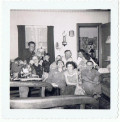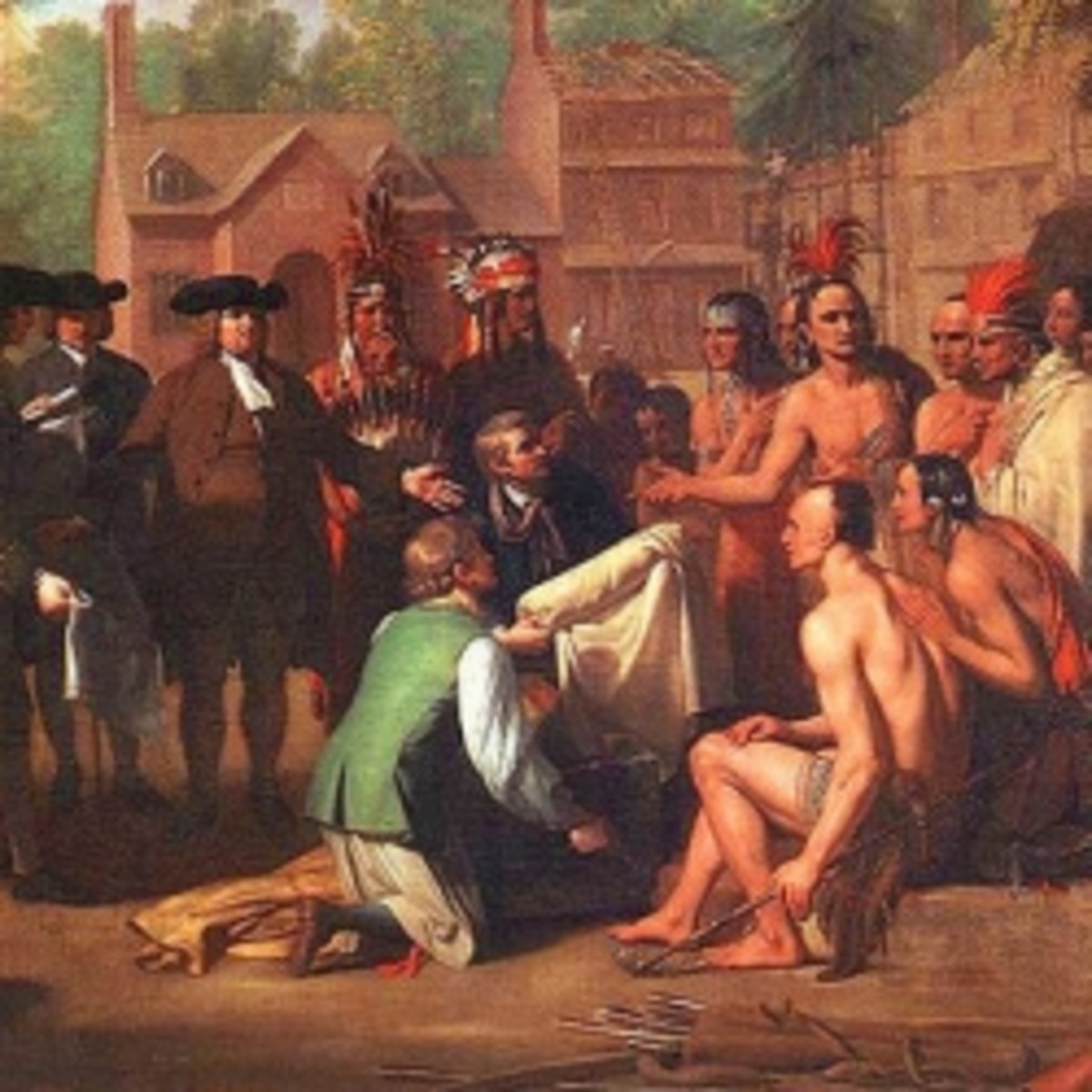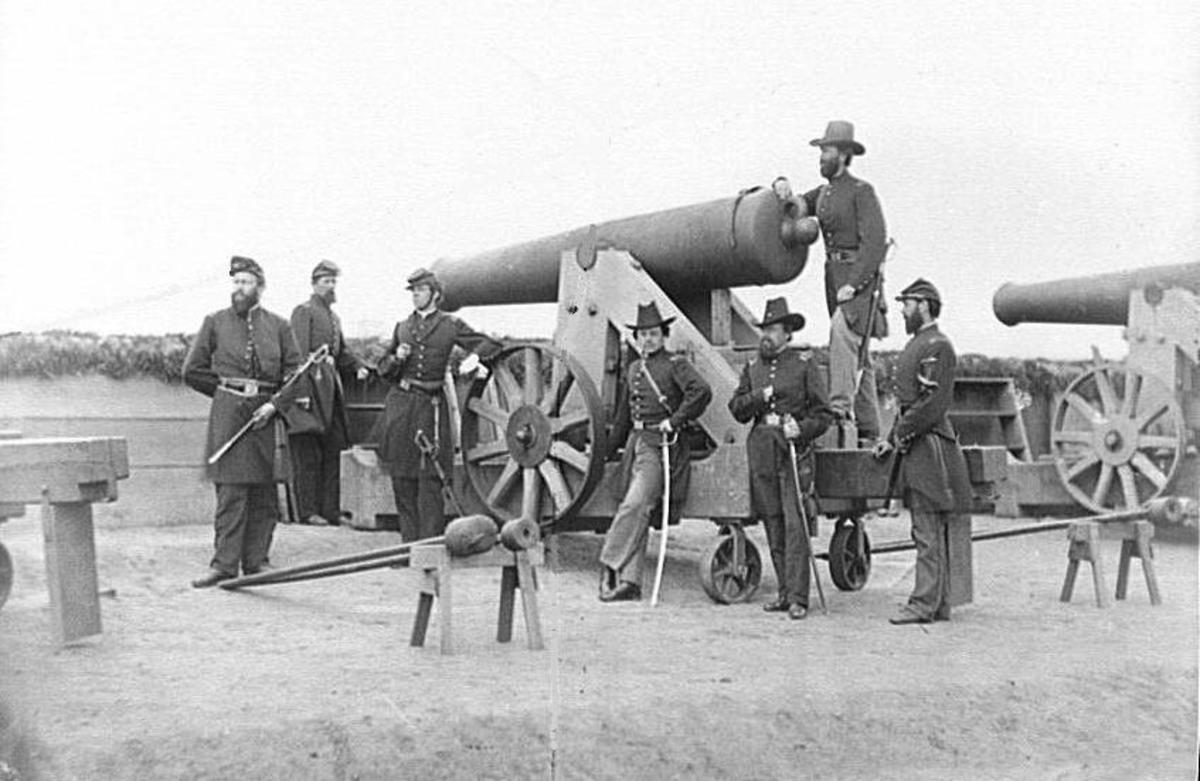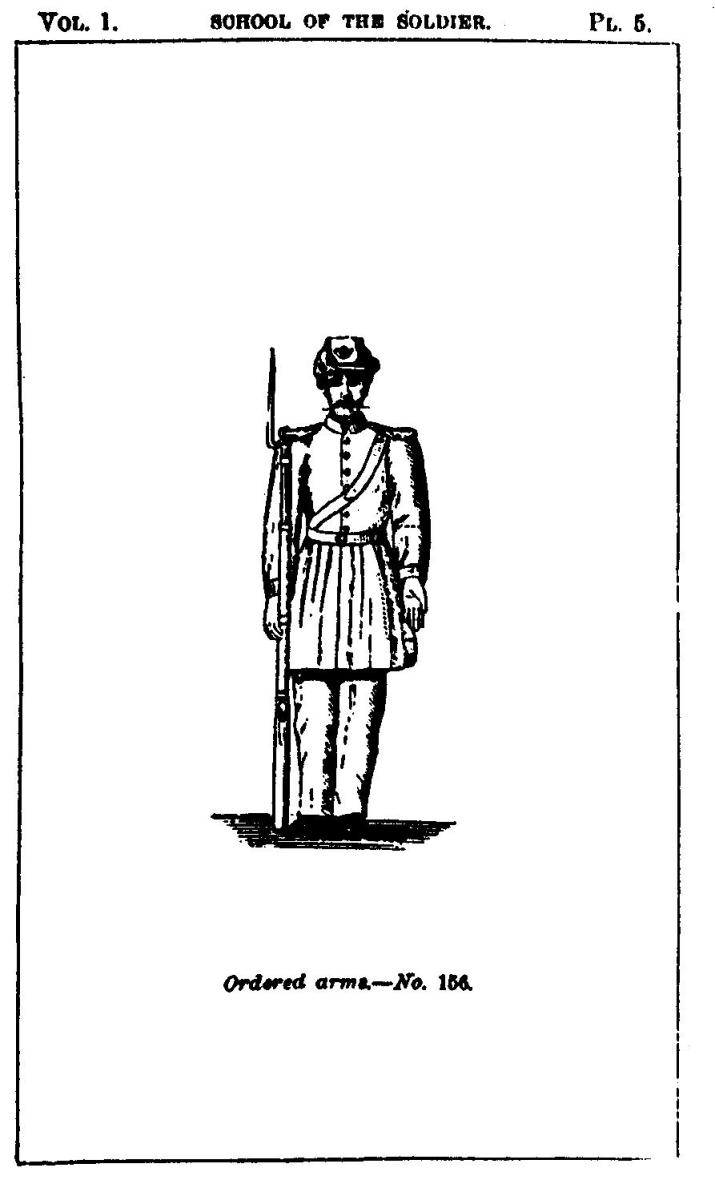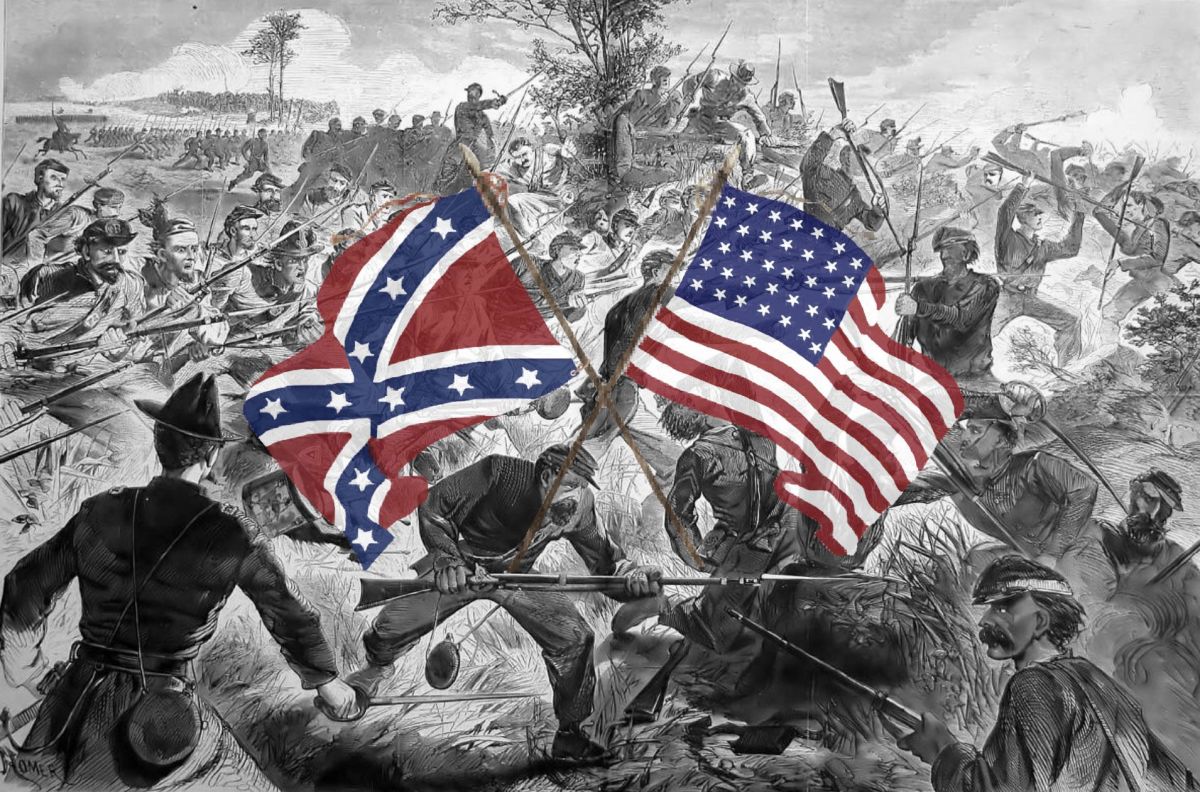- HubPages»
- Education and Science»
- History & Archaeology»
- History of the Americas»
- American History
Ora Labora - A Lost Colony in Michigan's North - Part Three
A Grim New Year for the Michigan Religious Colony
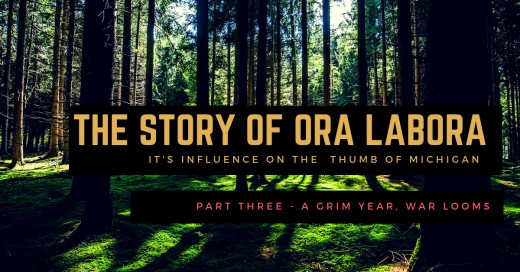
The tide of the war had turned for the Union. The prior July 1864 the northern army had won a decisive victory at Gettysburg Pennsylvania. Now, with the southern rebels in retreat, skirmishes had broken out in just about every major engagement area from Virginia to Louisiana. General Sherman was about to start his Atlanta campaign and begin a vengeful march toward the sea. It was to be a punitive knockout blow to humble the south and put an end to the war.
The attitude of the Ora Labora colony on Wild Fowl Bay was being humbled too. Emil Baur, the colonies appointed leader and pastor, had just received terrible news. His most vocal supporter and publisher of the German newspaper the Apologete, Wilhelm Ahrens, a German Methodist minister from Indianapolis, had publically announced that he would not advise anyone to go to the Michigan colony "unless he felt God had called him". Emil was heartsick. His most valued advocate and his newspaper were being cut off. This would cripple the colonies ability to communicate their pleas for funds and attract more colonists. The colony was feeling more isolated than ever.
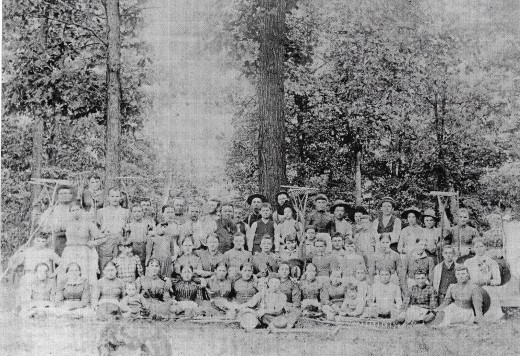
Fundraising for Survival of Ora Labora
The colony would have to arrange for its own survival by utilizing its only asset it has plenty of; land. The colony had over 3,000 acres of land that would be tax-free for three years as it was acquired under the 1862 Homestead Act. All through the fall and winter months of 1863, Baur focused his efforts to raise more capital funds to purchase equipment and materials for the colonies. He devised a real estate sale to sell 10,000 city-sized lots of the colony to non-members. In another move he offered investors to buy shares of the colony with a face value of $200 that, when they matured and were turned in, would render an extraordinary 6% interest. Each share would be guaranteed and backed by 160 acres of colony land if they defaulted. However both of these schemes failed to arise any interest and the cash poor colony was beginning to falter.
By mid-winter Emil was losing control. The Michigan land office had refused to do further business with Emil and the society’s leadership board. Any future land acquired would have to be done though individual settlers. To compound his troubles a former member of the colony knew the financial problems Emil was having and made an incredibly low-ball offer on 700 acres on some of the heavily timbered lake front land owned by the colony.
Reader Poll
Do you have family ancestors that took part in the American Civil War?
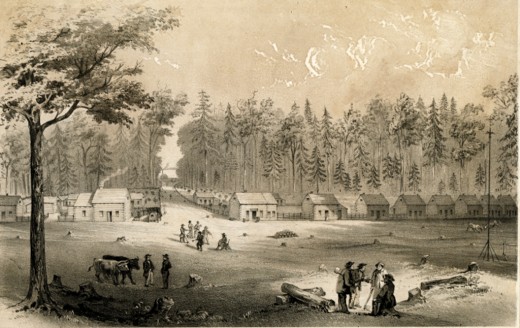
Facing Certain Failure, the Colony Bets it All
By January it was obvious that the colony could not survive and offering land piece-meal was pointless. The board had to resort to reducing the pay rate by 25 cents to $1.25 per day. There was no choice, the colony would have to mortgage its entire holdings. When preparing the mortgage the Attorneys demanded an official charter from the church. They were nervous that about the support from Economy Pennsylvania where Baur has been corresponding and receiving funding. Despite the objections from the attorneys, Baur still insisted that his community of 110 people was solvent and prosperous. He pointed out that they has just opened a school and employed two teachers from within the community. However, he admitted that they badly needed more skilled craftsmen and a larger mill operation to make use of the plentiful timber. He also called for a professional hunter, trapper, and fisherman as the colony residents were still trading with the Indians for meat and fish despite being established at Wild Fowl Bay for over a year.
By April Emil felt, the colony had a new life. He received an agreement from Economy for a mortgage that would secure funds of $20,000. He also had a contract to produce up to 6,000 telegraph posts for a dollar each. The cedar poles would be 25 feet long, pealed, with no knots and shipped from their new dock. However, he was worried. The war in the south was still raging and men from all over the state were being drafted at increasing numbers. It was only a matter of time before the most able of the colonies men would be pressed into service.
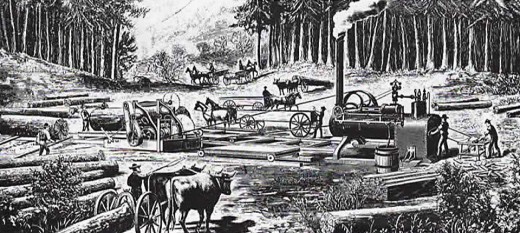
Pleas for Further Investment
Emil traveled to Economy Pennsylvania during the summer of 1864. He wanted reassure the investors and to stress the importance of getting a larger engine for the mill. The current engine that the colony had bought soon after they arrived in Michigan could only run one large circular saw. Having a lumber mill with higher capacity was critical to the colony for income. In a letter that Adam Harder wrote to his children from Ora Labora, he noted that they could get $4.50 for a 1000 cedar shingles if they could deliver them to Saginaw or $2.50 if a customer took delivery at the dock. The colony was thick with cedar that was in high demand.
Emil pleaded for the funds to purchase a large steam engine for the mill. With a large engine, they could set up a turning-lath, a shingle machine, a grinding mill, for which the colony already had and still other saws for edging. With this equipment, they could expand beyond telegraph poles and shingles. They could now utilize the smaller scrape lumber to make lath boards and staves for the salt-barrels for shipment to Saginaw.
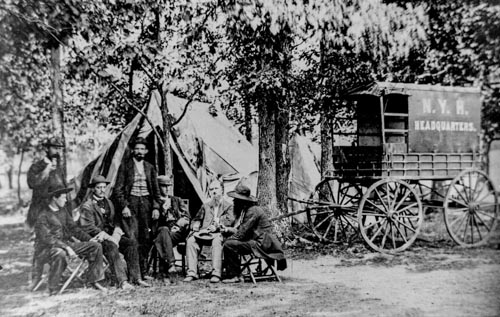
A Cold Wind Blows in Over the Colony
In early October, a storm ripped through the Upper Thumb and the Ora Labora colony. There was significant damage to some buildings and to Emil Baur himself. Emil also received a conscription notice to report and determine if he was fit for service. This news reached his benefactors in Economy who were very concerned; they had invested a great deal in the colony and were worried that it would not make it through the winter without Emil. They asked if Emil had the funds to hire a substitute.
Emil reported to East Saginaw later in October. He knew that exemptions from the draft could be purchased for $300 but the colony simply did not have those kind of funds. Now he was surrounded by 824 other men aged 18 to 43 from the 6th congressional district. In days, the 29th Regiment, Michigan Infantry they would make their way to Tennessee where they would immediately be engaged in a battle to capture Nashville. There they would stay until the end of the war. He would have to put his trust in God.
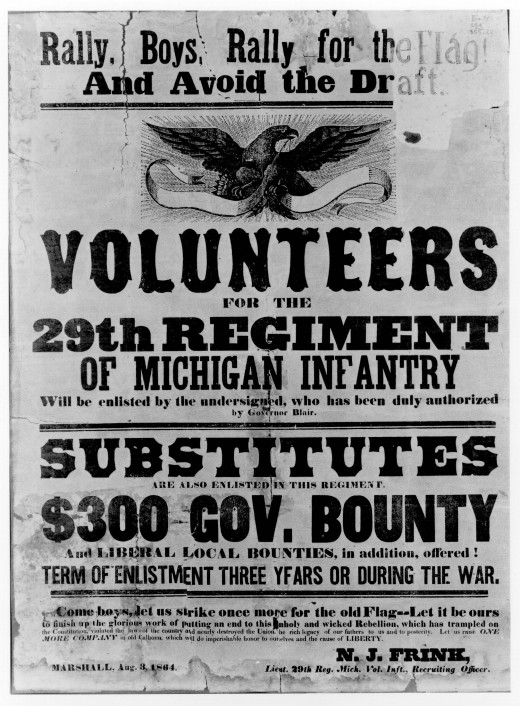
A Bit of Luck Saves Emil and the Colony
By early November, Emil reports to Jacob Henrici and R.L. Baker at Economy that he had been deemed unfit for service. This good fortune for this 33 year old was short lived. When Emil returned to Ora Labora in early November he learns that four of his men had been conscripted enlisted in Caseville and where already on their way to the provost marshal in Flint where they would join the Twenty-third Michigan Infantry. It was a crushing blow. Two of the men, Louis Faul and John J. Froebe were leaders in the community that he considered indispensable.
The colony was already down 14 members as sickness and disillusionment set in about living in such hard conditions. It was looking like there would be a long hard winter ahead.
Related Hubs About Ora Labora
- Ora Labora - A Lost Colony In Michigan's North
Ora Labora known as “Christian German Agricultural and Benevolent Society of Ora et Labora” (Pray and Work), where it's parishioners could combine work with prayer, and live according to the Methodist Church Discipline. Founded in 1862 on Michigan’s - Ora Labora - A Lost Colony in Michigan's North - Part Two
Part II of the Ora Labora story outlines the summer of 1863. Building is rapid and progress exciting in Michigan's north. But the looming effect of the Civil War is about to impact this fledgling German religious colony's effort to bring their cultur - Ora Labora - A Lost Colony in Michigan's North - Part Four
Part IV of the Ora Labora start during Christmas 1864. The Colonies funds and provisions are low and its leader Emil Baur is begging his benefactors for loans to make it through the winter. With the war in its closing days the colonist are hopeful.
Sources Consulted
- Ora Labora: Experiment in Communal Living, Caseville Historical Museum, Unpublished.
- Translated Letters of Ora Labora from Dr. Robert Conway. Private Collection.
- Ora Labora -- A German Methodist Colony. Parts I & II, May 1982, Adrian College
- Nixon, “The Society of Separatists of Zoar,” Dissertation., p.162.
- Ohio History Journal – The Ohio Historical Quarterly p 136
- Transcription of Letters Written by Adam Harder. Transcribed by Howard Harder, a son of Frederick Zechariah Harder. Courtesy of Dave and Helen (Hutchins) Damouth
© 2018 Mike Hardy

